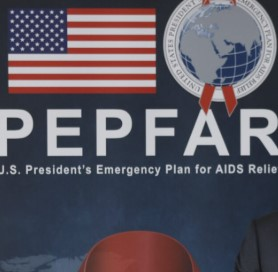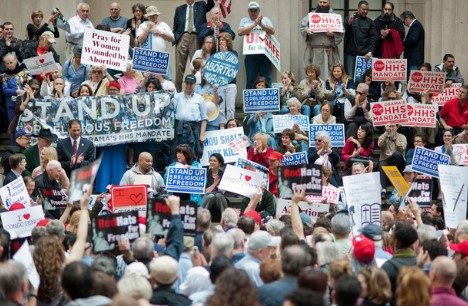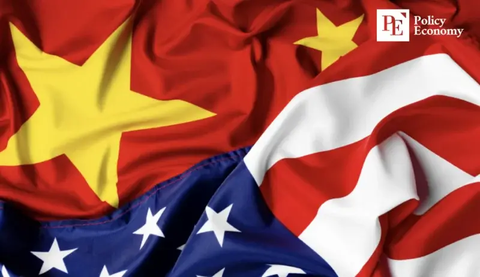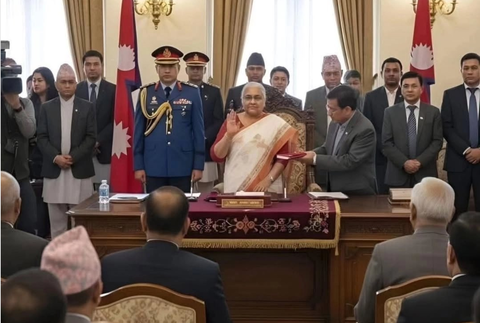Trump Administration Cuts HIV Prevention Funding: A Public Health Setback
Input
Modified
The Controversial Decision: A Step Backward for HIV Prevention Evangelical Groups and Political Pressures The Public Health Backlash: Concerns About the Future of HIV Prevention

The Controversial Decision: A Step Backward for HIV Prevention
The Trump administration has made a controversial decision that could have a far-reaching impact on public health efforts in the United States. The administration has moved to end federal funding for HIV prevention programs, a move experts have described as catastrophic. The change comes at a time when HIV rates are still a significant concern in many communities, particularly among marginalized groups, including the LGBTQ+ population.
The decision to cut these critical programs raises several serious questions about the future of HIV prevention in the U.S. and the broader implications for public health. As the government takes steps to roll back funding and restructure HIV prevention initiatives, it becomes clear that the consequences of these actions will be far-reaching. While the administration claims that HIV prevention will continue through alternative funding sources, experts warn that the long-term effects of these cuts could undo years of progress in the fight against HIV.
The Trump administration’s move to cut federal HIV prevention programs is not only controversial, but it also raises concerns about the federal government's role in safeguarding public health. Experts have expressed alarm, calling the decision a "catastrophic" setback in efforts to reduce HIV transmission and improve public health outcomes for those affected by the virus.
HIV remains a significant public health issue in the United States, particularly within communities most vulnerable to the virus. This includes gay and bisexual men, transgender individuals, and people of color. According to public health experts, cutting funding for programs like those administered by the Centers for Disease Control and Prevention (CDC) will make it harder to combat the epidemic, leading to more infections, more deaths, and greater health disparities.
The federal government’s involvement in HIV prevention has been pivotal for decades, and the programs run by the CDC have played a major role in lowering transmission rates. The programs offer education, prevention methods, testing, and access to essential healthcare for those living with HIV. The Trump administration’s decision to pull federal support from these efforts, which have been a cornerstone of the U.S. public health response to the epidemic, threatens to undo these gains.
While the move to cut funding for HIV prevention programs is controversial, the Department of Health and Human Services (HHS) has defended the decision, claiming that it does not mean HIV prevention will come to an end. According to HHS officials, the department intends to use other funding sources to continue the program, despite the cuts to federal HIV prevention funding. This justification has not reassured many experts, who worry that the lack of a consistent and stable funding stream could undermine the effectiveness of HIV prevention programs.
It remains unclear what other funding sources will be used to sustain these programs, and experts fear that reliance on inconsistent and less reliable funding streams could lead to gaps in coverage. The risk is particularly high for communities that already face significant barriers to healthcare, including those without access to private insurance or resources to pay for care.
Without dedicated funding, there are fears that essential services like HIV testing, education campaigns, and prevention outreach programs will be significantly reduced, if not eliminated. HIV testing is a critical step in preventing transmission, as individuals who know their status are more likely to take steps to protect their own health and prevent the spread of the virus. If testing services become less accessible, more people may unknowingly spread HIV to others, contributing to a rise in new cases.

Evangelical Groups and Political Pressures
One factor that has influenced the Trump administration’s decision is the strong political support of evangelical groups. Evangelical Christians make up a significant portion of Trump’s political base, and their opposition to federal funding for HIV/AIDS prevention programs has been well documented. These groups have historically resisted comprehensive HIV prevention programs, particularly those that involve education on condom use or sexual health practices that align with LGBTQ+ rights.
Evangelical groups have long promoted abstinence-only education and opposed broader public health initiatives that they perceive as contrary to their moral beliefs. These groups have been vocal in their advocacy for the reduction of federal support for HIV prevention programs, citing concerns about the use of taxpayer money for initiatives they view as promoting behaviors they oppose. It is likely that their influence on Trump’s decision-making played a role in the administration’s move to cut funding for HIV prevention programs.
The political pressure from these evangelical groups underscores the broader cultural and ideological divide in the U.S. over issues related to LGBTQ+ rights and sexual health. While some view HIV prevention as a necessary public health measure, others frame it as a moral issue, with religious beliefs shaping their stance on how the government should approach the epidemic. For the Trump administration, balancing the demands of its political base with public health needs has proven to be a difficult challenge, and the cuts to HIV prevention funding reflect this tension.

The Public Health Backlash: Concerns About the Future of HIV Prevention
The move to end federal HIV prevention programs has sparked widespread backlash from public health experts, activists, and politicians alike. These critics argue that the cuts will reverse decades of progress in reducing the spread of HIV in the U.S. and around the world. The rollback comes at a time when efforts to end the HIV epidemic are gaining momentum, with many countries and organizations working to reach the United Nations' target of ending AIDS by 2030.
In addition to the direct impact on HIV prevention efforts, the cuts could also undermine public trust in the government’s commitment to addressing other public health issues. If the administration can roll back funding for HIV prevention, critics worry that other essential health programs could face similar threats in the future. The erosion of trust in the government's commitment to public health could ultimately harm efforts to address other pressing health challenges, such as the opioid epidemic or rising rates of mental health issues.
For many LGBTQ+ advocates and activists, the decision to cut HIV prevention funding represents a direct assault on their community’s health and well-being. LGBTQ+ individuals, particularly men who have sex with men, are disproportionately affected by HIV. The cuts to federal HIV programs are seen by many as a failure to protect one of the most vulnerable populations in the country.
As the Trump administration moves forward with its plans to cut funding for HIV prevention programs, the future of these efforts remains uncertain. The administration’s claims that alternative funding will be used to continue the programs may offer some reassurance, but the effectiveness and sustainability of these alternatives are unclear.
One thing is certain: the decision to cut federal HIV prevention funding will have long-term consequences for public health in the U.S. As the virus continues to disproportionately affect vulnerable communities, particularly LGBTQ+ individuals and people of color, the need for effective HIV prevention programs remains as critical as ever. The question remains whether the Trump administration will reconsider its position or whether these cuts will be the beginning of a broader rollback of public health programs in the country.
The Trump administration’s decision to cut funding for HIV prevention programs is a significant step backward in the fight against HIV and AIDS. While the administration insists that the programs will continue under different funding sources, experts and activists alike are deeply concerned about the long-term effects of these cuts. With HIV still a major public health challenge in the U.S., particularly for marginalized communities, this decision could undo years of progress in reducing transmission rates and improving the quality of life for those living with the virus.
As the situation develops, it will be essential for public health advocates, political leaders, and the broader community to continue to advocate for the protection of these crucial programs. The future of HIV prevention in the U.S. hangs in the balance, and the need for sustained, comprehensive efforts to combat HIV is more urgent than ever. The decision to cut these programs marks a critical moment for the future of public health in America, and its consequences will be felt for years to come.





















